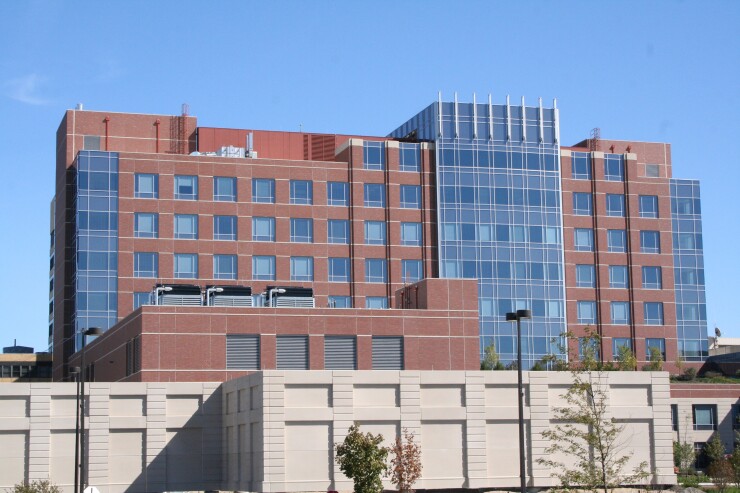CHICAGO – Illinois not-for-profit hospitals dodged a tax bullet with the state' Supreme Court’s decision to uphold a law that safeguards local property tax exemptions and other breaks in exchange for providing equal levels of charity care and community benefits.
The

“This was an important case because had it been found unconstitutional it would have implications in other states as some localities look to impose property taxes or challenge them,” said George Huang, a senior fixed income analyst on Wells Fargo Securities’ healthcare team.
Critics of the property tax exemptions – which have no bearing on the exemption to federal income taxes for interest on tax-exempt hospital bonds – say hospitals operate too much like for-profit corporations to warrant the breaks.
The threat to hospital balance sheets was real even as the sector seems to be on healthier footing, Huang said.
“Hospitals may seem profitable but with already thin margins that are strained by reimbursement pressures having to pay the property tax would pressure the bottom line,” he said.
That position is backed up by a report last week from Fitch Ratings on median operating margins for 2018.
"Operating margins remain under pressure for the second straight year, which means stress is not letting up for not-for-profit hospitals" as hospitals face labor and wage pressures, said analyst Kevin Holloran.
The Supreme Court opinion upheld an appellate court ruling. The plaintiff had argued that the charity care statute violated the state constitution, which says exemptions are permitted only if a property is used exclusively for charity, whereas the charity care statute puts a value on the level of care/community benefits to meet charitable standards.
The high court disagreed. “While [the statute] does not expressly provide that the hospital charitable property tax exemption is limited to applicants that satisfy the constitutional requirement of exclusive charitable use, section 6 of article IX of the Illinois Constitution does say so, and we presume that the legislature intended to comply with this constitutional limitation,” the opinion said.
The Illinois Health and Hospital Association defended the 2012 law’s importance saying it promotes healthcare services to low-income residents, provided clarity for hospitals and taxing bodies, and helped ensure that hospitals have the resources to serve their communities.
“Taxing non-profit hospitals would hurt the communities they serve by diverting dollars that are better used to care for patients and to upgrade equipment, modernize facilities and hire needed staff,” association president A.J. Wilhelmi said in a statement. The association intervened in the case joining the state in defending the law.
The law was a compromise that ended a state crackdown seeking to strip some hospitals of their exemptions for failing to provide sufficient free or discounted charity care. Hospitals' access to the bond market through the Illinois Finance Authority was also at stake.
Rating agencies had warned that the state’s crackdown threatened ratings while investors were demanding a trading penalty on some credits due in part to the fiscal threat.
The 2012 legislation requires all not-for-profit hospitals show that they provide sufficient qualified services at a level equal to or greater than their assessed property tax liability. The state for a long time had limited the charity care definition to free or discounted care rendered to a patient at the time of service.
As part of the legislation, hospital representatives won an expansive widening of the definition of charity care activities to cover community outreach and educational services, in-kind services, subsidized services, and the shortfall between the cost of providing a service and the amount compensated under Medicaid.
The new rules did not remove the threat from local taxing bodies or resolve the city of Urbana's attempt to collect taxes from Carle Foundation, a nonprofit organization anchored by the 393-bed Carle Foundation Hospital in Urbana.
Struggling local governments like Urbana's have argued that some hospital properties are operated like corporations generating profits for the hospital and should be subject to taxes.
The hospital went to court to seek the exemption on tax years prior to passage of the legislation and prevailed at the Champaign County Circuit Court level. The taxing districts appealed and prevailed before the appellate court in arguing that the statute violated state constitutional language.
An Illinois appellate court found in January 2016 that the law is "unconstitutional on its face because it purports to grant a charitable exemption on the basis of an unconstitutional criterion, i.e., providing services or subsidies equal in value to the estimated property tax liability … without requiring that the subject property be 'used exclusively' for charitable purposes."
The Illinois Supreme Court in March 2017
That left the Oswald case to progress through the courts and serve as the vehicle to determine the law’s constitutionality.





